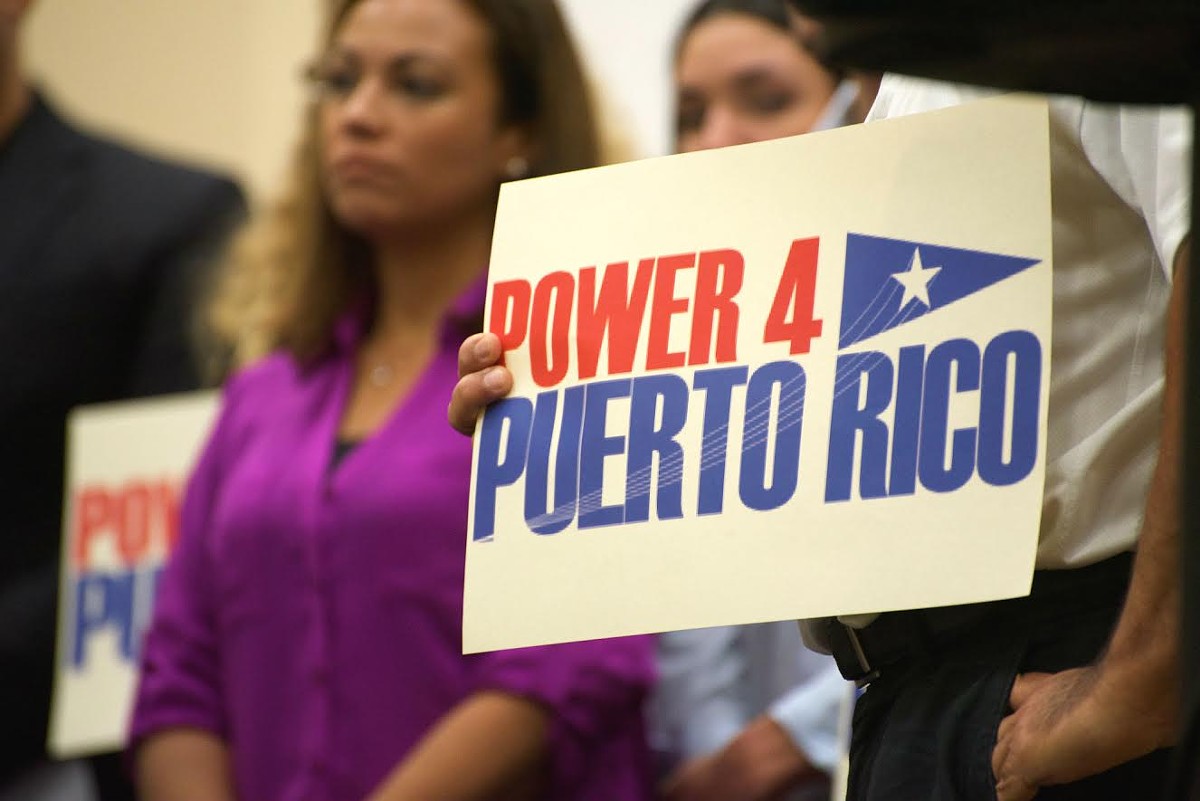Two years ago, Betsy Franceschini was getting at least 100 inquiries a day to her Kissimmee office from Puerto Ricans desperate for a better life.
Thousands of families fled the U.S. territory in 2015 for the metro Orlando area because of its crushing financial crisis and $72 billion debt. As the director of Florida's regional Puerto Rico Federal Affairs Administration office, Franceschini helped new arrivals connect with agencies that could provide help with housing, food and other services.
It was overwhelming then – but Franceschini says it's nothing compared to the "unprecedented" exodus of Puerto Ricans who are now trying to escape deteriorating conditions on the demolished colony in the aftermath of Hurricane Maria.
Almost 70 days after the destructive storm tore through the island's weak infrastructure, the situation remains intolerable – a significant portion of the 3.4 million U.S. citizens who live in Puerto Rico remain completely in the dark, without electricity or access to potable water. In two months, tens of thousands of people have fled to the mainland, with the majority headed to established Puerto Rican strongholds in Florida, especially Orlando. Franceschini, who now heads Hispanic Federation's Florida office, and other community members have been working for weeks to provide the island's hurricane victims with food donations, housing, access to jobs, health care and even English classes.
"We have a record number of people coming from the island – we've had more Puerto Ricans leave the island and come to the U.S. in the last several years than in the 1950s when a major exodus came to New York," she says. "Our community needs to come together and stay present and do what needs to be done."
The Puerto Rican exodus to Florida is so massive it could surpass the number of Cuban refugees who escaped to Miami during the Mariel boatlift in 1980 or the number of New Orleans evacuees who fled to Houston in the aftermath of Hurricane Katrina, says Jorge Duany, director of the Cuban Research Institute and professor of anthropology at Florida International University.
Duany says a conservative estimate from a report by the Center for Puerto Rican Studies at Hunter College projects that between 114,000 and 213,000 people will leave the island annually after Maria, a jump from the 89,000 who left in 2016.
In two years, the report estimates, Puerto Rico will lose 14 percent of its population, or 470,335 residents. In a 10-year span after the end of World War II in 1945, nearly 700,000 people arrived in New York City during the Great Puerto Rican Migration, according to research from the Library of Congress.
Florida, which already has more than 1 million Puerto Ricans, is expected to receive the most evacuees – since Oct. 3, more than 195,000 people have flown from Puerto Rico to Florida through major airports in Tampa, Miami and Orlando, according to data released Monday by the state emergency management division. Duany says that number, though, doesn't reflect how many people are staying or include evacuees who came on cruise ships.
"It's difficult to compare to any exodus, except perhaps the Irish exodus in the late 19th century during the Great Famine," Duany says. "More people left than remained. We may be seeing something like that given the magnitude of destruction that was created in Puerto Rico after the hurricane."
While politicians have desperately analyzed how the Puerto Rican exodus could turn Florida's voter base blue (Puerto Ricans tend to vote Democrat), less examination has been given to how politics could change on the island.
The continued loss of population, which Duany says has mostly consisted of young people between the ages of 18 to 45, would decrease the island's tax base. Before Maria, federal lawmakers had already established a fiscal control board over the commonwealth's budget, which imposed harsh austerity cuts that have affected schools and universities.
"There's no way Puerto Rico can address debt in any significant way if it doesn't raise more money from its citizens," he says.
President Donald Trump's perceived negligence toward the island after Maria and ugly public spats with Puerto Rican officials could also shift the island's opinion on retaining its status as a commonwealth or becoming a state, Duany says, but it's too soon to tell – Puerto Ricans are still in shock, and immediate needs like water, electricity and food haven't been met.
While Floridians have been welcoming Puerto Ricans to the Sunshine State with open arms, U.S. Rep. Darren Soto says a mass depopulation of the island would "strongly hurt their ability to recover."
"That's why we've worked hand in hand with [Puerto Rican] Gov. Ricardo Rosselló's office and with other legislators in other parties to get them what they need," Soto, an Orlando Democrat, says. "We tell everybody who wants to come here that as Americans, we welcome you. But we do understand that we have to fix the island's resources, so that people are only coming here because they want to – not because their schools are closed or they don't have jobs available or can't get basic utilities."
Jose Luis Rivera, a student at the University of Central Florida, is one of the thousands of young people who moved to Orlando before Maria to find better opportunities. Now, as the president of the new UCF Puerto Rican Student Association, he and other students are helping evacuees who are enrolling in the university.
Puerto Rican students are having a hard time enrolling in college classes because many have taken on two jobs to send money back home to their families for recovery efforts. Others can't find housing on campus or are worried about how long Florida's in-state tuition waiver for Puerto Rican students will last – the student association is pushing for at least a couple of years.
"Many of them are in shock, basically," Rivera says in Spanish. "They say the island looks like a disaster apocalypse."



















